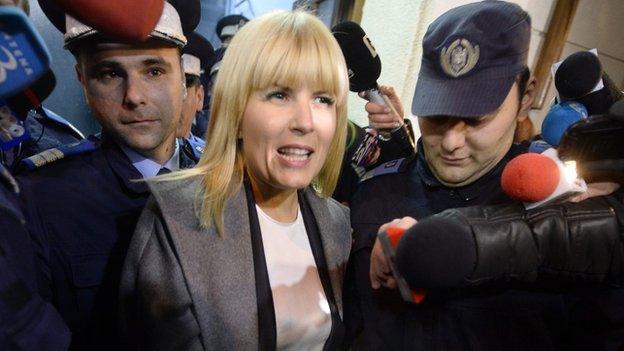Romania protests: 'Race against time' for corruption fighters
- Published
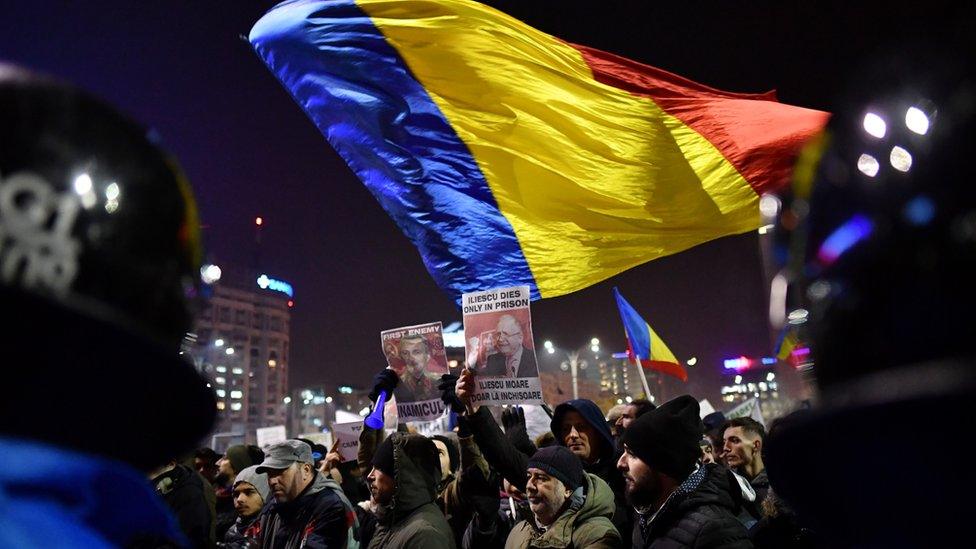
The protests are the largest since communism was overthrown in 1989
Hundreds of thousands of Romanians are staging daily protests against a controversial government decree.
The emergency ordinance, rushed through by Minister of Justice Florin Iordache on 31 January, would allow the release of dozens of convicted public officials from prison, and stymie current and future prosecutions.
Three separate legal challenges have been filed against it to the Constitutional Court.
The government, led by the left-wing Social Democrats (PSD), says the people on the streets have been "misled and misinformed" and the decree will stay in place.
It's a race against time. The decree is due to come into force at midnight on 10 February.
'Patriotic protest'
This is a country where street protests have toppled governments before, and the protesters know it.
Each day the crowds begin to gather in Victoria Square in Bucharest before sunset. Many carry or are draped in the Romanian tricolour.
This is a "patriotic" protest they say, in defence of the rule of law, and Romania's reputation for tackling the plague of corruption head on.
"The government is lying and cheating and it's our right to try to change that," said Tania, an 18-year-old student taking part in the protests.
"If we don't succeed, I will be forced to go abroad. I will not be able to stay here, and study, and raise a family."
"I strongly believe that this is a unique moment in my country,' said Sorin, 38, a banker and former student leader. "A new generation, motivated by national feelings, is standing up for our rights."
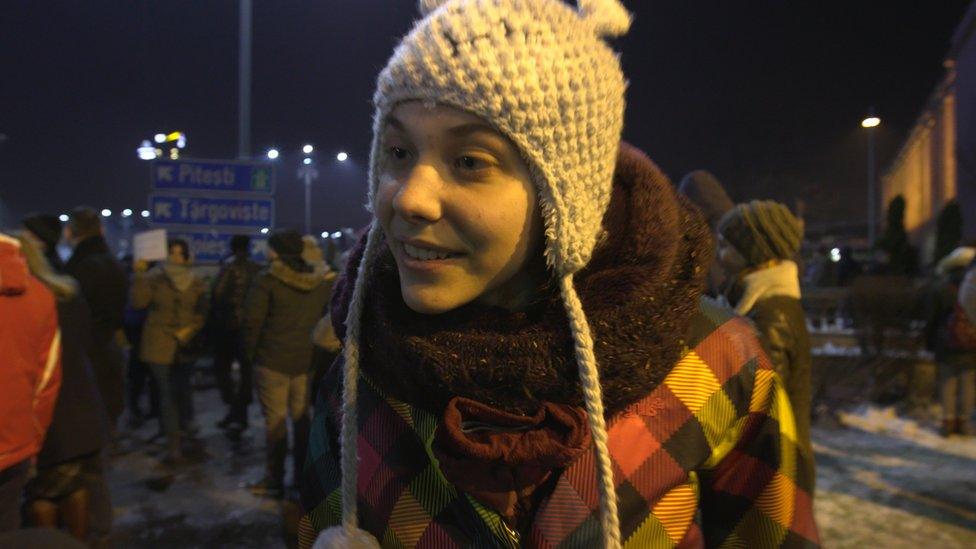
Tania, 18, is one of thousands taking part
By 22:00 in the evening, the crowds reach their full strength, not just in Bucharest, but in dozens of towns and cities across Romania.
There are no speeches - just people blowing horns and whistles, chanting the "hotsii" slogan, which means "thieves" in Romanian, and jumping up and down to keep warm.
Fifteen minutes walk from the main square, Laura Kovesi, the chief prosecutor of the National Anti-Corruption Directorate (DNA), shows me the children's paintings on her wall.
Some are of scarecrows - how children imagine the work of an anti-corruption prosecutor. Others are of the Lady of Justice, blindfolded, a pair of equally balanced scales in her hand.
'Criminals will be released'
The sheer speed with which the government passed this decree, and the lack of debate, helps explains this explosion of anger of the streets - and Ms Kovesi's dismay about what it means for her office.
At 19:00 on 31 January, Ms Kovesi got an email from the Ministry of Justice, giving her until 09:00 the following morning to offer her comments on the draft decree. She assembled her staff immediately, and they started work.
Two hours later, however, at 21:00. they saw on television that the decree had already been pushed through by the government.
"The damage it will do, if it comes into force, can never be repaired," Ms Kovesi says.
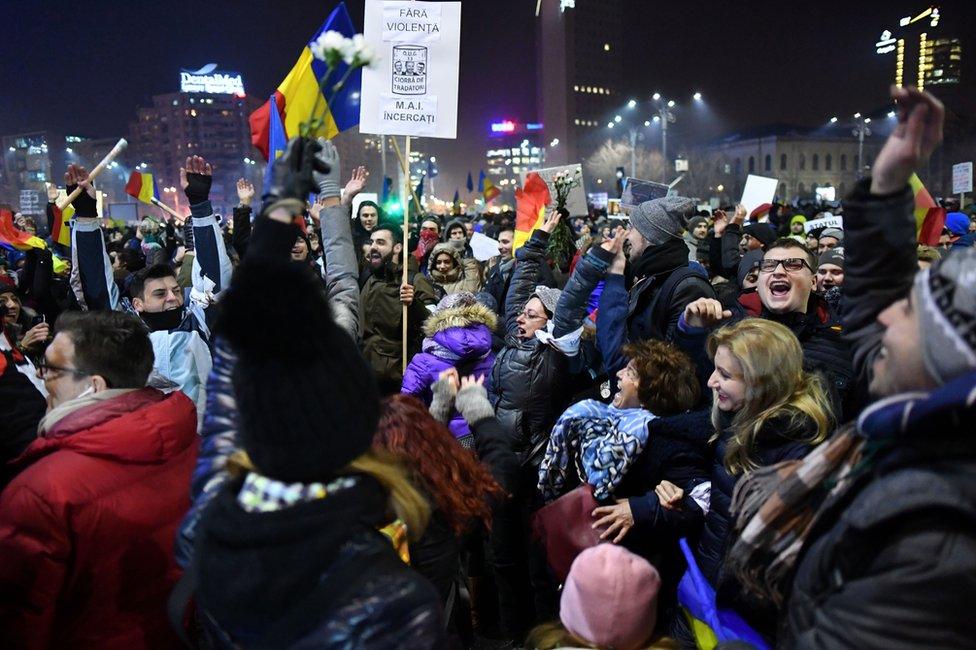
Demonstrators have vowed to continue daily rallies until 10 February
"People who are in prison with final conviction decisions… will be released. Cases now on trial will be closed, as will many which are currently being investigated by us."
Even if the government were to repeal or change the law after the 10 February deadline, all past and current cases would still be impacted by it having come into effect.
That would get hundreds of local and national politicians, mayors, judges, customs officials, the heads of state-owned companies and institutions, who have already been convicted, out of prison.
It would scupper many of the 2,151 cases now being pursued by 120 DNA prosecutors.
If the decree stays in place, it would also drastically reduce the directorate's powers to investigate future cases of corruption.
This is because the government decree would only allow criminal prosecution for cases involving sums greater than €44,000 (£38,000; $47,500).
Ms Kovesi gives me an example. If a hospital director has a budget of €1m for medicines, he could divide it into contracts each worth under €44,000 and award these to cronies. End of story.
'Republic of prosecutors'
That is not how Adrian Nastase, a former Social Democrat prime minister sees the issue. He has twice been sentenced to prison for bribery and blackmail, in cases brought by the DNA.
"Let us not lie. The government decree is just a pretext for street protests," he wrote in a blog entry this week.
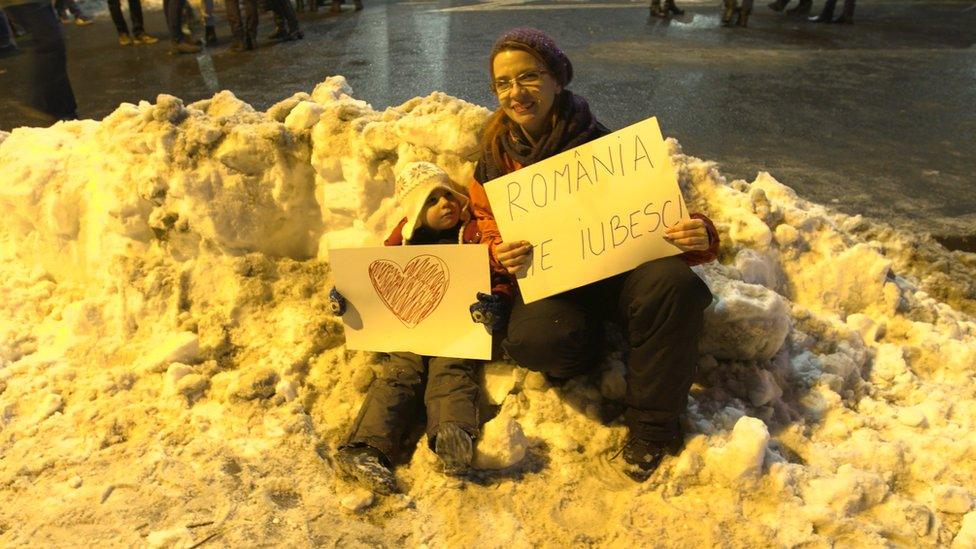
"Romania, I love you," this demonstrator's sign reads
Using the mantra of "anti-corruption", he wrote, the DNA has been transformed into a "superpower", a "republic of prosecutors" in Romania.
In response, the Social Democrat government which took power last month is simply trying to "recalibrate relations between state institutions".
Laura Kovesi rejects any suggestion that the DNA picks on one party or another, or has excessive power.
"Cases indicted by the DNA are seen, verified, checked by judges," she says.
"They check the legality of the evidence, and there are different levels of courts. Judges in Romania are impartial."
The protests continue.
- Published2 February 2017
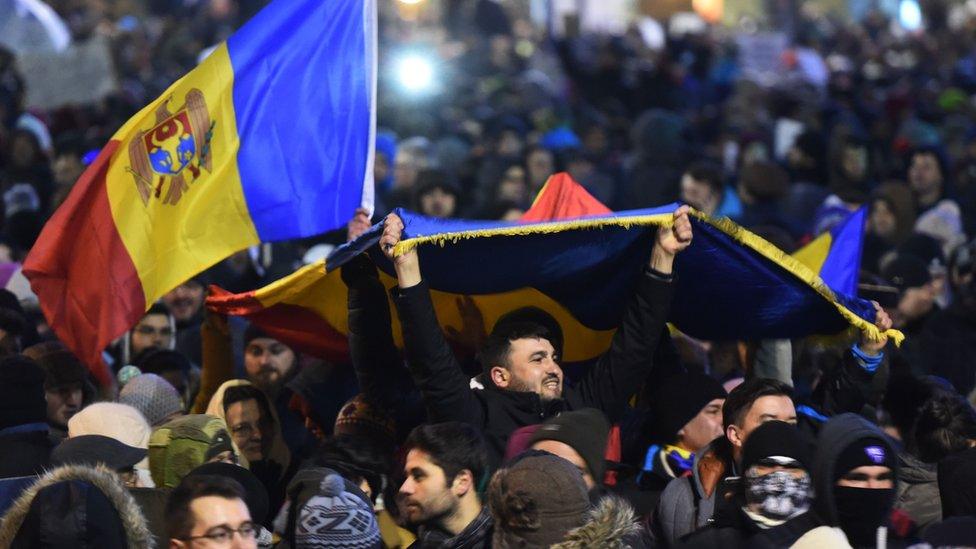
- Published23 January 2017
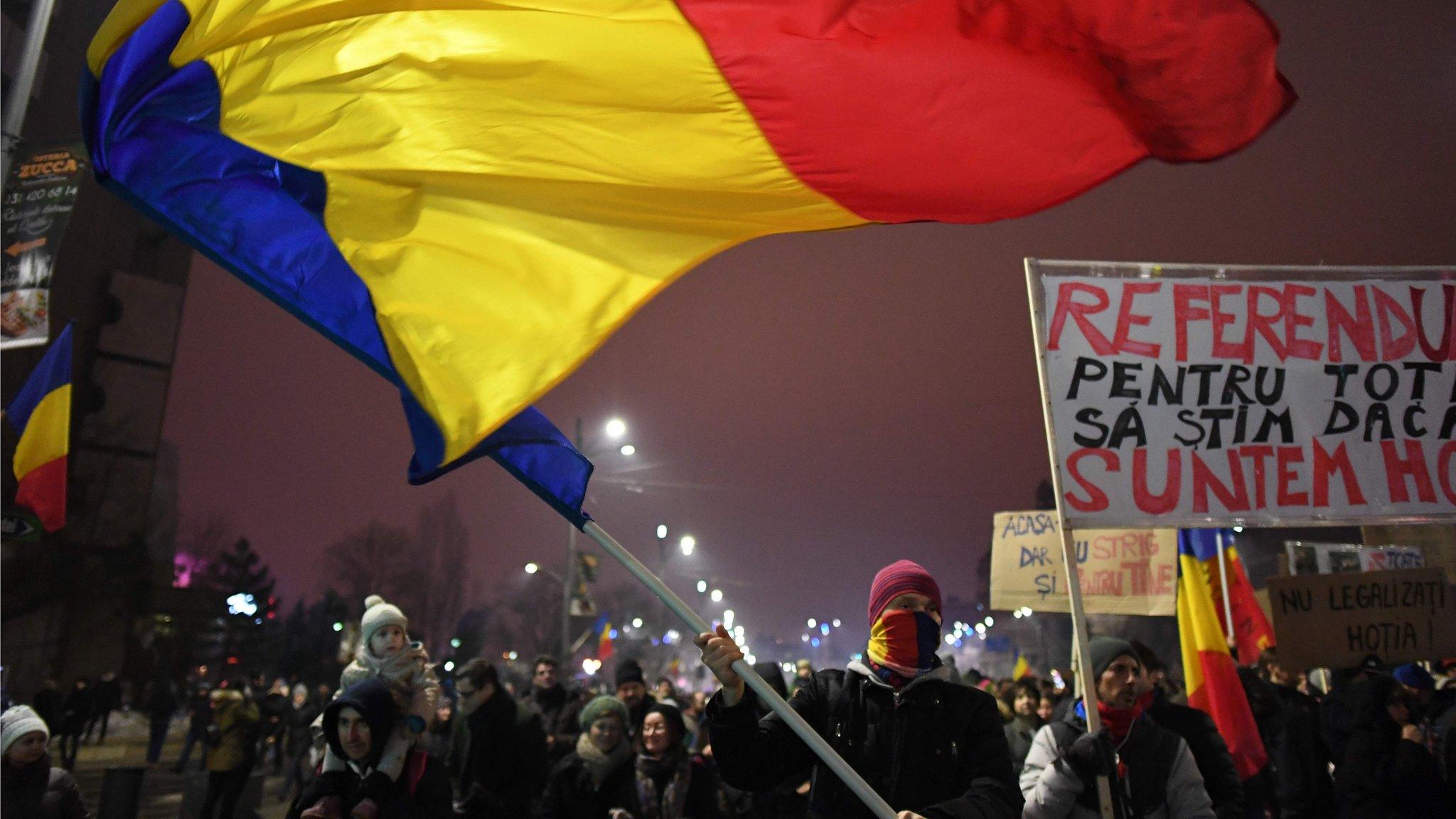
- Published11 December 2016
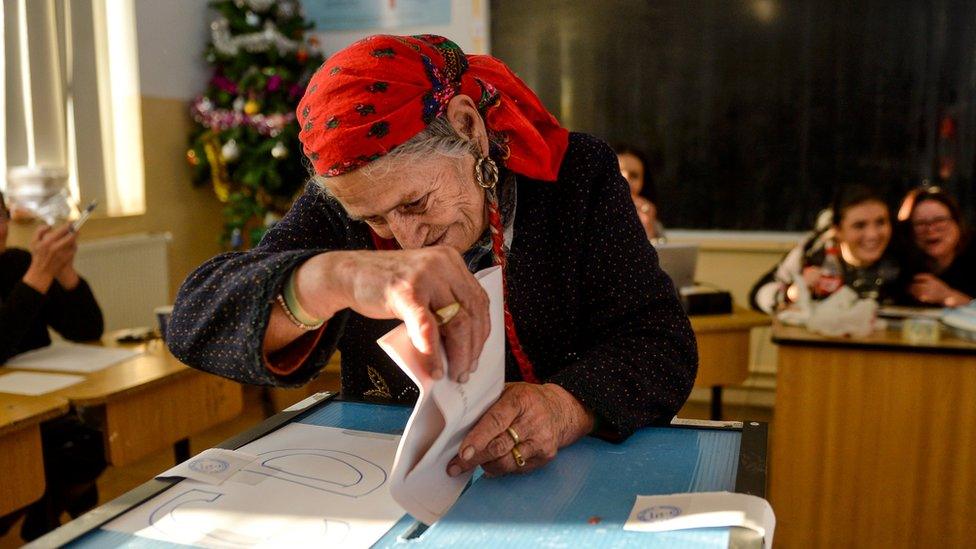
- Published4 November 2015
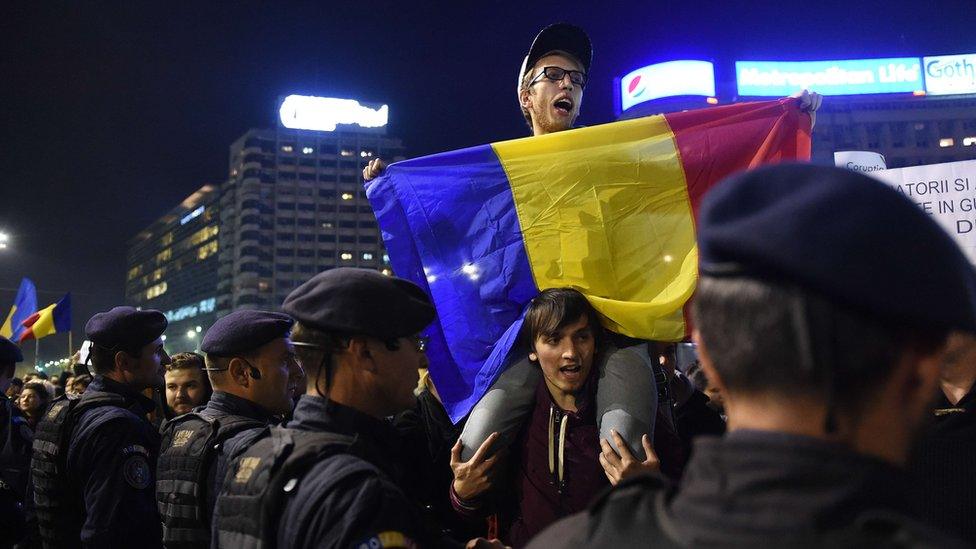
- Published18 December 2024
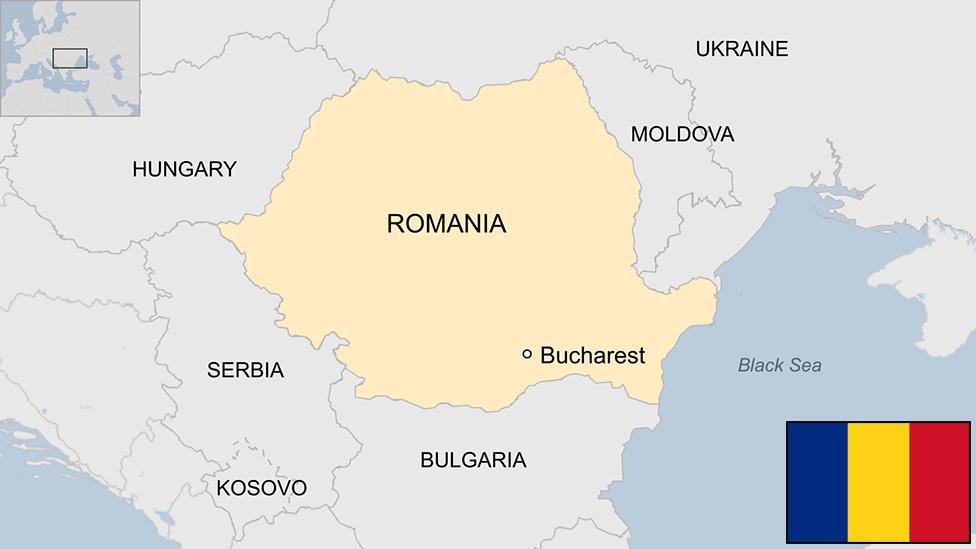
- Published19 February 2015
